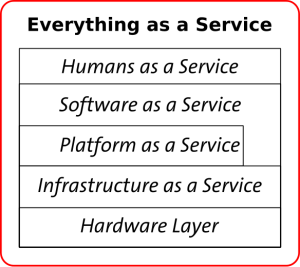October 23, 2024
In today’s interconnected digital landscape, cybersecurity is more than just a necessity—it's essential to business survival. Cyberattacks are becoming more frequent and evolving in sophistication, leaving companies vulnerable to data breaches, financial losses, and reputational damage. A robust cybersecurity strategy is critical to safeguarding your business from these growing threats. One of the most effective ways to enhance your cybersecurity defenses is by leveraging the expertise of professional IT support services. The Importance of a Strong Cybersecurity Strategy Every business, regardless of size or industry, is a potential target for cybercriminals. The consequences of a successful cyberattack can be devastating, ranging from financial losses and operational downtime to legal liabilities and damage to your brand's reputation. This is why developing and maintaining a robust cybersecurity strategy is more important than ever. A strong cybersecurity strategy helps your business: Protect sensitive data: Safeguarding customer information, intellectual property, and financial records. Ensure compliance: Meet regulatory requirements, such as CMMC, HIPAA, and SOC2, to avoid fines and legal repercussions. Maintain business continuity: Minimizing disruptions caused by cyberattacks and ensuring quick recovery when incidents occur. Build customer trust: Demonstrating to customers and partners that their data is secure, which can lead to stronger relationships and business growth. While some businesses attempt to handle cybersecurity internally, IT support services offer a more comprehensive, proactive, and scalable approach to protecting your business. Cybersecurity Services Provided by IT Support Teams IT support services can significantly enhance your cybersecurity strategy by offering a wide range of specialized services. Here’s how they contribute to protecting your business: 1. Risk Assessments and Vulnerability Audits One of the first steps in strengthening your cybersecurity strategy is understanding where your business is most vulnerable. IT support teams conduct risk assessments and vulnerability audits to identify potential weaknesses in your network, applications, and infrastructure. These assessments provide a clear picture of your business's risks, enabling you to take targeted action to mitigate those risks. 2. Implementation of Security Protocols Once vulnerabilities are identified, IT support services implement security protocols tailored to your business’s needs. This may include: Firewalls and Intrusion Detection Systems (IDS): Establishing barriers that prevent unauthorized access to your network. Data Encryption: Ensuring that sensitive data is encrypted in transit and at rest, protecting it from cybercriminals. Multi-Factor Authentication (MFA): Adding extra authentication layers ensures that only authorized personnel can access critical systems and data. Endpoint Protection: Securing all devices (laptops, desktops, mobile phones) connected to your network from malware and other threats. Applying these and other security measures can help IT support services fortify your defenses against internal and external threats. 3. Ongoing Monitoring and Threat Detection Cyberattacks can happen at any time and often occur when businesses are least prepared. IT support services provide 24/7 monitoring to detect suspicious activity in real-time. Through advanced monitoring tools and threat intelligence, IT teams can quickly identify and respond to potential threats before they escalate into full-scale attacks. This proactive approach to monitoring reduces downtime, prevents data breaches, and minimizes the impact of cyber incidents. IT support teams can continuously update and patch systems to address emerging vulnerabilities, ensuring your cybersecurity defenses remain current. 4. Incident Response and Remediation Even with robust security measures, no system is entirely immune to cyberattacks. When an incident occurs, the speed and efficiency of the response are critical in minimizing damage. IT support teams are equipped with incident response protocols to quickly isolate affected systems, investigate the root cause, and restore normal operations. With a well-coordinated incident response plan, businesses can significantly reduce downtime, prevent further data loss, and recover quickly from attacks. 5. Security Awareness Training for Employees Employees are often the weakest link in cybersecurity, with many attacks originating from phishing schemes, weak passwords, or social engineering. IT support services provide security awareness training to educate your staff about the latest cyber threats and best practices for staying safe online. Training employees on recognizing phishing attempts, using strong passwords, and securely handling sensitive data can dramatically reduce the likelihood of human error leading to a security breach. 6. Compliance Support For businesses in regulated industries, staying compliant with data protection regulations is not optional—it’s mandatory. IT support teams can help ensure your business meets all necessary compliance requirements, such as CMMC, HIPAA, or SOC2. This includes maintaining audit trails, ensuring data encryption, and implementing security controls to protect sensitive information. By working with IT support services, businesses can avoid costly penalties and demonstrate their commitment to protecting customer data. Conclusion A strong cybersecurity strategy is vital to any business's success in today’s digital world. By partnering with an IT support service, businesses can enhance their cybersecurity defenses through risk assessments, security protocol implementation, continuous monitoring, and employee training. These services protect data and help ensure business continuity and compliance with industry regulations. If your business wants to strengthen its cybersecurity posture, now is the time to consider working with an IT support provider. Doing so lets you stay ahead of evolving cyber threats and focus on growing your business with peace of mind. Ready To Strengthen Your Cybersecurity With SDTEK? Don't leave your business vulnerable to cyber threats. At SDTEK, we offer comprehensive IT support and managed cybersecurity services designed to protect your business and ensure seamless operations. Whether you need risk assessments, ongoing monitoring, or incident response, our team of experts is here to help. Contact SDTEK today for a free consultation and discover how we can enhance your cybersecurity strategy and safeguard your business. Protect your data, reputation, and future—partner with SDTEK now!



